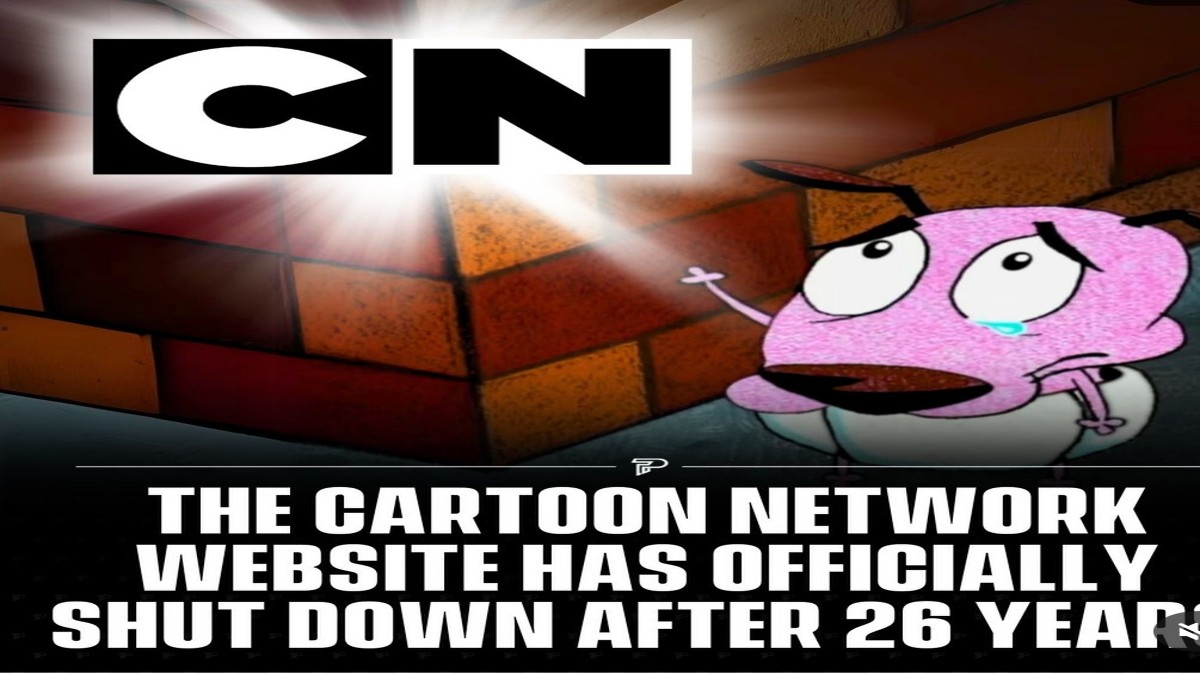Cartoon Network
Cartoon Network, a name synonymous with animated entertainment, has been a staple in the lives of children and adults alike for over three decades. From its launch in 1992, Cartoon Network revolutionized the way we consumed animated content.
It wasn’t just a channel; it was a cultural phenomenon, shaping the childhoods of millions worldwide. However, like all good things, it seems that this golden era has come to an end. The announcement of Cartoon Network’s shutdown has left many in shock, mourning the loss of what can only be described as the end of an era. In this article, we’ll explore the history, impact, and reasons behind the shutdown of Cartoon Network.
A Brief History of Cartoon Network
The Beginnings: 1992-1999
Cartoon Network was launched on October 1, 1992, by Turner Broadcasting System, a subsidiary of Time Warner. It was the first 24-hour network dedicated entirely to animated programming, and its impact was immediate.
The channel began by airing classic cartoons from the vast archives of Warner Bros., Hanna-Barbera, and MGM. Shows like “The Flintstones,” “The Jetsons,” “Tom and Jerry,” and “Scooby-Doo” became the backbone of the network, drawing in viewers of all ages.
The network’s first original programming block, “Cartoon Cartoons,” was launched in 1995, introducing a new generation of iconic shows. “Dexter’s Laboratory,” “Johnny Bravo,” “The Powerpuff Girls,” and “Ed, Edd n Eddy” became instant hits, establishing Cartoon Network as a leader in animated entertainment.
The Golden Age: 2000-2010
The early 2000s are often considered the golden age of Cartoon Network. During this period, the network produced some of its most memorable and beloved shows. “Samurai Jack,” “Courage the Cowardly Dog,” “Teen Titans,” “Foster’s Home for Imaginary Friends,” and “Ben 10” are just a few examples of the groundbreaking content that defined this era.
In addition to original programming, Cartoon Network also introduced “Adult Swim” in 2001, a late-night block dedicated to more mature content. “Adult Swim” became a cultural phenomenon in its own right, with shows like “Aqua Teen Hunger Force,” “The Venture Bros.,” and “Rick and Morty” garnering cult followings.
The Decline: 2010-2020
As the 2010s rolled in, Cartoon Network’s dominance began to wane. The rise of streaming services like Netflix, Hulu, and Disney+ provided viewers with a new way to consume content, leading to a decline in traditional TV viewership. While Cartoon Network continued to produce popular shows like “Adventure Time,” “Regular Show,” and “Steven Universe,” the landscape of children’s entertainment was changing rapidly.
Moreover, the network’s programming strategy began to shift. There was a noticeable decline in the production of new, original content, with the network instead focusing on reboots and spin-offs of older properties. Shows like “Teen Titans Go!” and “The Powerpuff Girls” reboot were met with mixed reactions from fans, many of whom felt that the network was losing its creative edge.
The Final Years: 2020-2024
In the years leading up to its shutdown, Cartoon Network struggled to maintain its relevance in an increasingly digital world. The COVID-19 pandemic further accelerated the shift towards streaming, with more and more viewers opting for on-demand content over traditional TV. Despite efforts to adapt, such as launching a streaming service and expanding its digital presence, Cartoon Network was unable to recapture its former glory.
In 2024, the announcement was made that Cartoon Network would be shutting down. The news was met with a wave of nostalgia and sadness, as fans reflected on the impact the network had on their lives. For many, it was the end of an era, a bittersweet farewell to a beloved part of their childhood.
The Impact of Cartoon Network
Cultural Influence
Cartoon Network’s impact on popular culture cannot be overstated. The network not only entertained but also influenced a generation of creators, artists, and animators. Many of today’s leading figures in the animation industry grew up watching Cartoon Network, and its influence can be seen in their work.
Shows like “Adventure Time” and “Steven Universe” pushed the boundaries of what children’s programming could be, tackling complex themes like mental health, relationships, and identity. These shows resonated with audiences of all ages, earning critical acclaim and solidifying Cartoon Network’s reputation as a pioneer in animated storytelling.
Diverse Representation
Cartoon Network was also a trailblazer when it came to representation in children’s media. The network’s shows featured a diverse range of characters, both in terms of race and gender. “The Powerpuff Girls,” for example, showcased strong female characters who were just as capable of saving the day as their male counterparts. “Steven Universe” was groundbreaking in its portrayal of LGBTQ+ characters and themes, earning praise for its inclusivity and positive representation.
Innovative Storytelling
One of Cartoon Network’s greatest strengths was its willingness to experiment with storytelling. Shows like “Samurai Jack” and “Over the Garden Wall” broke away from traditional episodic formats, instead opting for serialized narratives that allowed for deeper character development and more complex plots.
This innovative approach to storytelling set Cartoon Network apart from its competitors and helped to elevate the medium of animation as a whole.
Community and Fandom
Cartoon Network fostered a sense of community among its viewers, particularly through its online presence. The network’s website and social media channels became hubs for fans to connect, share fan art, and discuss their favorite shows. This sense of community was further strengthened by the network’s involvement in fan conventions and events, where fans could meet the creators and voice actors behind their favorite shows.
The Reasons Behind the Shutdown
Changing Viewing Habits
One of the primary reasons for Cartoon Network’s decline was the changing nature of how people consume content. The rise of streaming platforms has fundamentally altered the entertainment industry, with viewers now expecting instant access to a vast library of content. Traditional TV networks, including Cartoon Network, have struggled to compete with the convenience and variety offered by streaming services.
Competition from Streaming Services
As mentioned earlier, streaming services like Netflix, Disney+, and Hulu have become dominant players in the entertainment industry. These platforms not only offer a wide range of content but also produce high-quality original programming. This has made it increasingly difficult for traditional TV networks to attract and retain viewers.
Moreover, many of Cartoon Network’s classic shows are now available on these streaming platforms, making it easier for viewers to access their favorite content without needing to tune in to the network itself. This has further contributed to the decline in viewership.
Financial Challenges
Like many other traditional media companies, Cartoon Network has faced financial challenges in recent years. The decline in viewership has led to a decrease in advertising revenue, which has had a significant impact on the network’s bottom line. Additionally, the cost of producing high-quality animated content has continued to rise, making it more difficult for the network to sustain its operations.
Shift in Corporate Strategy
The decision to shut down Cartoon Network is also part of a broader shift in corporate strategy. Parent company Warner Bros. Discovery has been undergoing significant restructuring in recent years, with a focus on streamlining its operations and maximizing profitability. As part of this process, the company has been consolidating its various assets and prioritizing its streaming services over traditional TV networks.
The shutdown of Cartoon Network is a reflection of this shift, as the company looks to focus its resources on its streaming platforms, such as HBO Max and Discovery+. This move is in line with industry trends, as more and more media companies pivot towards digital and on-demand content.
The Legacy of Cartoon Network
A Generation’s Nostalgia
For many, Cartoon Network was more than just a TV channel; it was a significant part of their childhood. The network’s shows provided a sense of comfort and joy, creating memories that have lasted a lifetime. The announcement of the shutdown has sparked a wave of nostalgia, with fans reminiscing about the shows that shaped their formative years.
Influence on the Animation Industry
Cartoon Network’s influence on the animation industry is undeniable. The network helped to launch the careers of many talented creators and animators, who have gone on to create some of the most beloved shows of the past few decades. The network’s commitment to pushing the boundaries of animated storytelling has left a lasting impact on the medium, inspiring a new generation of creators to continue its legacy.
Enduring Popularity of Its Shows
Despite the shutdown, the legacy of Cartoon Network’s shows will continue to live on. Many of the network’s classic shows have achieved cult status and will likely continue to be enjoyed by future generations. Additionally, the availability of these shows on streaming platforms ensures that they will remain accessible to fans for years to come.
The Future of Animated Entertainment
While the shutdown of Cartoon Network marks the end of an era, it also signals a new chapter in the world of animated entertainment. The rise of streaming platforms has created new opportunities for creators to reach audiences and experiment with different formats and storytelling techniques. As the industry continues to evolve, the influence of Cartoon Network will undoubtedly be felt in the years to come.
Conclusion
The shutdown of Cartoon Network is a bittersweet moment for fans around the world. It marks the end of a beloved institution that has brought joy and entertainment to millions over the past three decades. However, it is also a reminder of the ever-changing nature of the entertainment industry and the need for adaptation in the face of new challenges.
As we bid farewell to Cartoon Network, we can take comfort in the fact that its legacy will continue to live on through the shows and memories it has left.


















Fantastic post! I look forward to reading more from you.